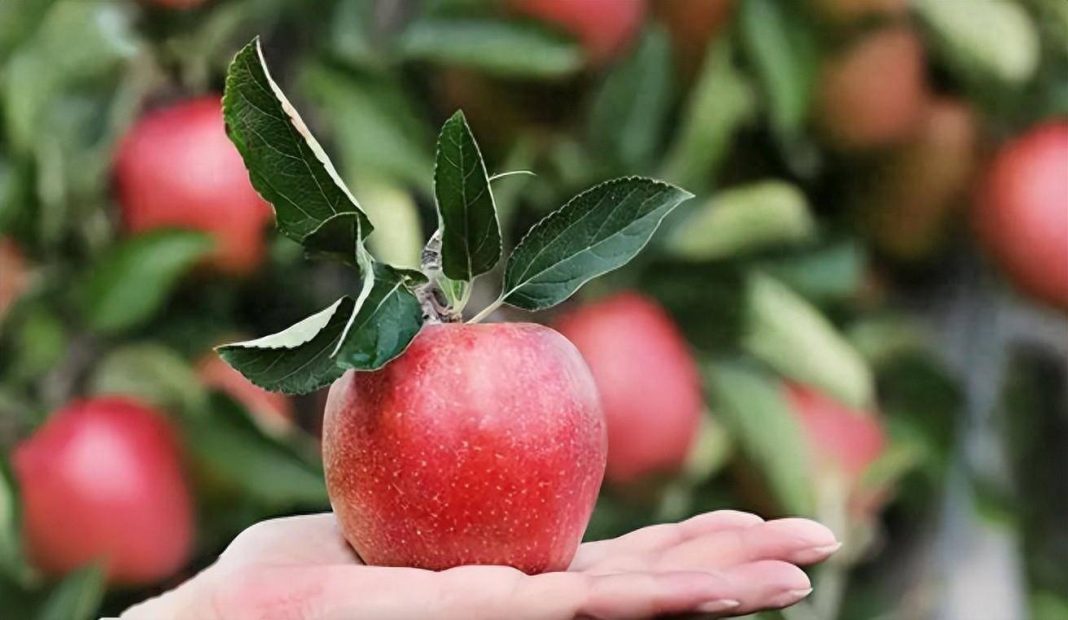Before reading this article, we sincerely invite you to click “Follow”, which will not only facilitate your discussion and sharing but also provide you with more professional health knowledge to escort your health. Thank you for your support.
Climate change not only affects the melting speed of glaciers but also changes various aspects of our lives. From food choices to daily habits, the high-temperature environment has a profound impact on our health.
Especially for the elderly, attention should be paid to diet and lifestyle habits during the hot summer to prevent health problems.
There is an old saying, “an apple a day keeps the doctor away,” and apples seem to have become synonymous with health. However, in the high temperatures of summer, apples may not always be friendly to the health of the elderly. For example, an elderly grandmother who usually enjoys eating apples suddenly felt chest tightness and shortness of breath on a hot day. The doctor, after detailed questioning, pointed out that consuming apples in large quantities in a high-temperature environment may be one of the root causes of the problem.
From a medical perspective, although apples are rich in vitamins and fiber, they also have a high sugar content, especially fructose.
This sugar content is prone to causing blood sugar fluctuations in high-temperature environments, and since the elderly have weaker body regulation functions, these fluctuations may increase the burden on the cardiovascular system and even trigger heart attacks.
In addition, the high fiber content of apples is beneficial for gastrointestinal health, but for the elderly with weaker gastrointestinal function, excessive fiber intake may lead to indigestion and gastrointestinal discomfort.
Another easily overlooked food is bananas.
In high-temperature environments, the body sweats more, and electrolyte balance is easily disrupted. High-potassium foods can lead to elevated blood potassium levels, which can cause heart problems; this is especially crucial for the elderly and those with heart disease.
In summary, the elderly need to pay special attention to their diet during the summer, avoiding high-sugar and high-potassium foods such as apples, bananas, and cold drinks. While these foods are beneficial for the general population, they may lead to a range of health issues for the elderly.
On the contrary, the elderly should choose light, easily digestible, and nutrient-rich foods such as leafy vegetables, whole grains, and moderate amounts of protein. These foods not only provide the necessary nutrients but also help maintain overall health and prevent disease.
Scientific research shows that the elderly need to pay special attention to their diet and lifestyle habits in high-temperature environments. It is essential to maintain adequate fluid intake but avoid drinking large amounts of water at once, especially chilled beverages.
To further explore this topic, we propose a related question: How can the elderly maintain their health, prevent heatstroke, and cardiovascular diseases in high-temperature environments? This question leads to a broader discussion, namely comprehensive health management for the elderly in high-temperature environments. We will discuss these issues in detail in the following sections and provide scientific advice and guidance.
The elderly need to take multiple approaches to maintain their health in high-temperature environments.
First, adequate fluid intake is crucial, with a recommendation of drinking at least 8 cups of water per day. However, consuming large amounts of water at once, especially chilled beverages, should be avoided.
For example, the elderly can take a 30-minute walk in the morning and engage in light exercise in the evening to maintain vitality and health. Additionally, incorporating cooling foods like mung bean soup and tremella soup into their diet can provide relief from heat while offering rich nutrition. Furthermore, the elderly should maintain good lifestyle habits, avoid staying up late, ensure ample sleep to preserve health and vitality.
We hope these suggestions can help the elderly maintain their health in high-temperature environments, preventing heatstroke and cardiovascular diseases. Through a balanced diet and healthy lifestyle habits, the elderly can stay healthy and vibrant in the hot summer, enjoying a cool and comfortable season.
Maintaining the health of the elderly in hot weather depends not only on diet and fluid intake but also on other factors that require attention.
The health management of the elderly in summer should be comprehensive, covering aspects such as mental health, home environment, and social interactions.
The home environment also needs to be adjusted appropriately to cope with high temperatures.
For homes without air conditioning, placing ice or buckets of cold water in the room to lower room temperature through evaporation can be effective. Additionally, the elderly’s bedroom should be situated in a cool area of the house, away from direct sunlight. Window coverings like blackout curtains or blinds can reduce the heat from sunlight.
For instance, a female college student’s grandfather often felt uncomfortable in the hot weather but disliked using air conditioning due to concerns about electricity costs. She suggested placing several pots of cool water in the house to naturally lower the temperature through evaporation. Moreover, hanging damp towels in the room to increase air humidity can help cool the living space. These small tips not only assist in cooling but also save on electricity costs, making the grandfather feel much more comfortable.
What are your thoughts on this? Feel free to discuss in the comments section!
Author: OASIS
Note: First published original content, plagiarism will be investigated to the end!
Reference:
[1] Huang Haixia. What are the dietary taboos for the elderly with high blood lipids? [N]. Medical Care and Health News, 2024-01-27


